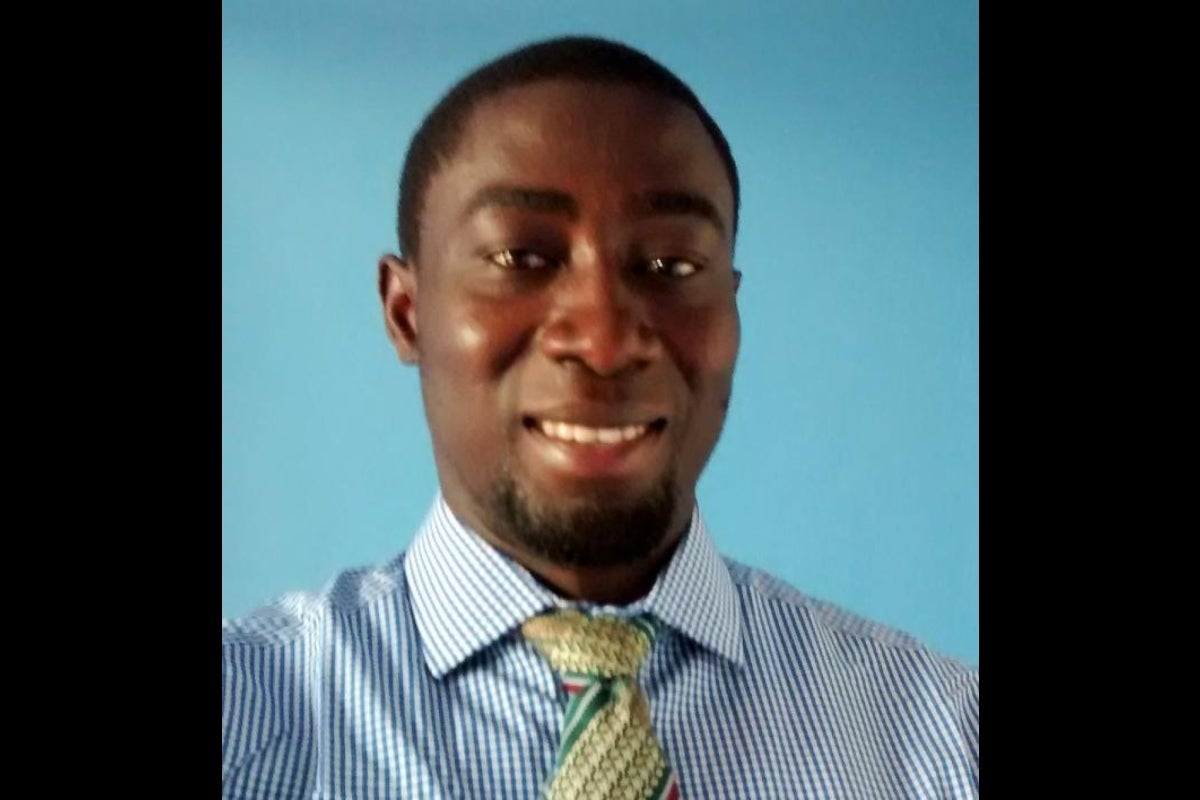Life sciences student earns global award for fighting hunger

Balanding Manneh, the 2016 President William Jefferson Clinton Global Hunger Leadership Award recipient, working in assistant professor and senior sustainability scientist Arianne Cease's lab. Together they study the impact the locusts on crops in Senegal, West Africa. Photo by Charlie Leight/ASU Now
While growing up in Gambia, Africa, Balanding Manneh experienced hunger intimately — losing childhood friends to starvation and malnutrition-related illnesses. Now an undergraduate at Arizona State University, those painful events have propelled him to work on ending hunger around the world.
Since beginning his college career, he has researched ways to eradicate food insecurity in his native continent, as well as started a non-profit organization to help rural communities.
To recognize those accomplishments, Stop Hunger Now, a non-profit hunger relief organization, and the North Carolina State University Center for Student Leadership, Ethics and Public Service, named Manneh as the 2016 President William Jefferson Clinton Global Hunger Leadership Award recipient.
“I envision a world in which people have access to quality food irrespective of their levels of income, social status or where they live on the planet,” said Manneh, a sophomore with the School of Life Sciences. “There is no feeling so satisfying than knowing that this is an achievable goal.”
The award, first presented in 2009, honors former President Bill Clinton for his commitment to humanitarian causes, including the eradication of hunger. Manneh is the award’s eighth recipient.
“It’s one thing to see pictures of hungry people on television, but it’s another thing to actually experience it firsthand like I did growing up,” Manneh said.
In 2014, Manneh founded Rural Impact, a non-profit organization that supports young people, women and rural farmers in developing countries by providing them with the resources and training to engage in activities that generate income. The organization teaches agricultural best practices and encourages community dialogues on how to sustainably track issues related to hunger, malnutrition and poverty.
For creating Rural Impact, Manneh received an African Youth Excellence Award in Public Service nomination in 2015.
Manneh participates in the School of Life Sciences Undergraduate Research program. He studies the impact of locusts on crops and works alongside faculty with ASU’s Julie Ann Wrigley Global Institute of Sustainability. Their research focuses on projects aimed at protecting livelihoods and fighting food insecurity in Senegal, West Africa.
“Balanding is strongly committed to ending hunger and poverty and considers food security a central part of his personal vision,” said Arianne Cease, assistant professor and senior sustainability scientist. “His actions reflect his vision.”
Manneh will receive the award at the Universities Fighting World Hunger Summit held in Missouri on Feb. 27.
More Science and technology

Podcast explores the future in a rapidly evolving world
What will it mean to be human in the future? Who owns data and who owns us? Can machines think?These are some of the questions…

New NIH-funded program will train ASU students for the future of AI-powered medicine
The medical sector is increasingly exploring the use of artificial intelligence, or AI, to make health care more affordable and…

Cosmic clues: Metal-poor regions unveil potential method for galaxy growth
For decades, astronomers have analyzed data from space and ground telescopes to learn more about galaxies in the universe.…
